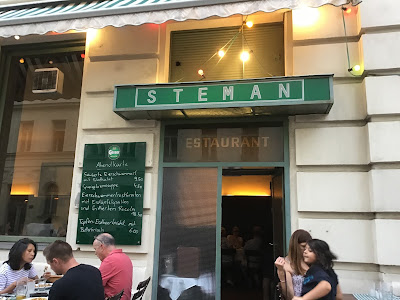Normally when I publish one of my poems: I do not give any kind of hint as to what I was aiming for; no explanations as to my reasons for using specific vocabulary; no structural analysis. In short no cues nor clues. This poem is one of two recently written. I am very slow, as mostly I create the poems in my head first. Obviously, for those familiar with this blog, the reader is aware I have memory issues. I frequently lose whole poems created this way. However, this has been my modus operandi for as long as I can recall.
This one was created slightly differently. I started with a conversation I had on line with a good friend. He gave his permission for me to use our chat as the basis for a poem. I explained my usual MO and that, if he wished, I should send him my drafts. In this instance there were three: my first was the structure; my second some minor tweaking; my third additional lines and some word changes, which added twenty percent or so to the word-count.
The basic structure is as follows:
Stanza 1 - violent intro; trigger for St.2
Stanza 2 - the past
Stanza 3 - the wished-for future
Stanza 4 - the present
Stanza 5 - the types of love, the love yearned for & why
Stanza 6 - external advice on dealing with the past in the present
Stanza 7 - attitude to future parental demise
Stanza 8 - result of following external advice & pondering parental death
My friend very kindly responded in writing. His thoughts and comments follow.
*
I wanted to respond quickly on a couple of things in this poem to give you something to chew on. Please see these below in a list (since I love lists):
I love the format of having the multiple options below a starting word or phrase. This was especially successful when describing the older daddies.
Thanks - I call them “shopping lists”!
Loved the breaks and disjointed manner of the piece, especially in the "Wrapped in strong arms Cuddling Assurance I am loved..." section.
At this point I sent the structure, as outlined above.
The paragraph (for lack of a better term) that starts "And what of my Pater..." was especially strong and I felt really hit the heart of our long conversation in just a couple of short lines. I especially liked "No grave-side last-minute hypocrisy" line because that's a very relate-able thing that people may go through or do.
In poetry the usual term is stanza, but verse is also acceptable. I use stanza as I consider verses would be of similar length & style, whereas I rarely conform to equal length nor necessarily stylistically.
Do you need the concluding line of "Welcome the new Me"? I didn't feel like it added much to the piece for me, personally. It felt like a repeat of a previous idea, despite being novel. I'm not sure if that's what you were going for or not.
It’s the conclusion to the rest of the discussion - as outlined. Additionally I wanted to include the term “Survivor” and contrasting it with the more usual “victim”. Personally, this is because I no longer feel like the victim with no control, for I have asserted Myself over the Past. This is the result of taking & acting upon advice in St. 6 and echoes the “holism” referenced in St. 4. Additionally - ay! - the new-me parallels birth from parent, rebirth from me.
In the first paragraph, "of a failed exemplar" feels like a pretty kind/weak description based on what I know about you and the situation. Did you mean to start off softly and ramp it up through the poem?
Exemplars are more than examples, they are rôle-models. Parents are meant to be the exemplars that progeny wish to emulate. They are cutting-dies, if you like. This is a much stronger term. However, this latter term is no use here as it contains double meanings with reference to self-harm and death which I did not wish to use at this point. Parents are meant, after all, to be loving & caring as opposed to hateful & oppressive.
Though I really liked the pacing and feeling of the yoga paragraph, I wasn't sure that it felt like it totally belonged. Were you including it as an example of the type of self-care required of your up-bringing? Or as a contrast to your experiences with the violence described above it?
Mindfulness is a technique for being in the moment, i.e. not in the past. I am also gently lampooning this trendy technique. Nonetheless it is actually helpful in the armoury that deals with the effects of post-traumatic existence.
I really appreciate the effort you put into responding to my poem. None of my friends with degrees/interests in literature have ever gone to such lengths.
Hopefully, my break-down of the stanzas and the reason(s) for their inclusion goes some way to explaining what my intentions are. I am still not totally happy with St. 5, but consider it necessary so the reader can understand the gamut of loves that exist. The issue with English language is that we do not differentiate: every type is covered by just the one word. We borrow either from Greek or French. So I am accepting of having to include some clunkiness, due to this linguistic failing.
J., once again, thank you so much for your thoughtfulness and for taking the time to respond so thoroughly. I really appreciate it and you!
*
I normally do not encourage debate about my poetry. I consider they are entities in their own right and deserve their own existence. On this occasion, I am willing to engage in discussion, criticism, comment, whatever, if the reader wishes to respond in some manner. Please feel at liberty to comment in the section below this blog-post.
















